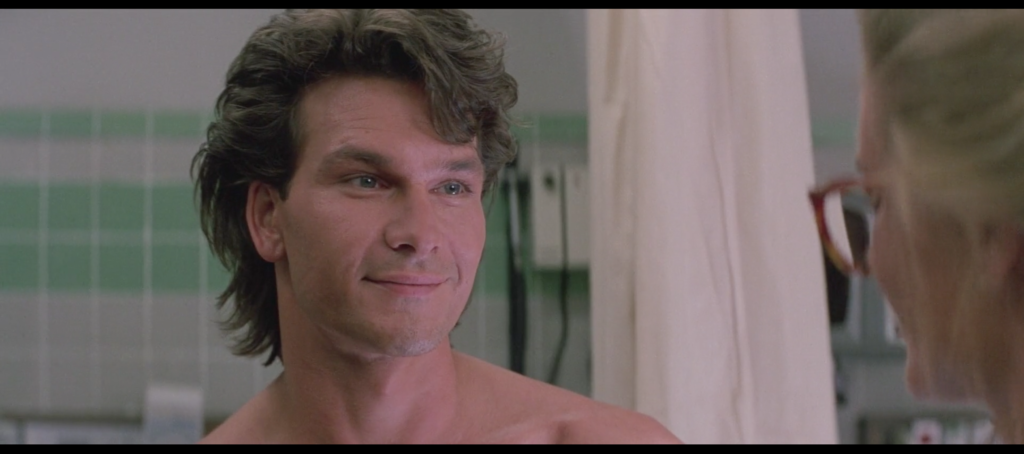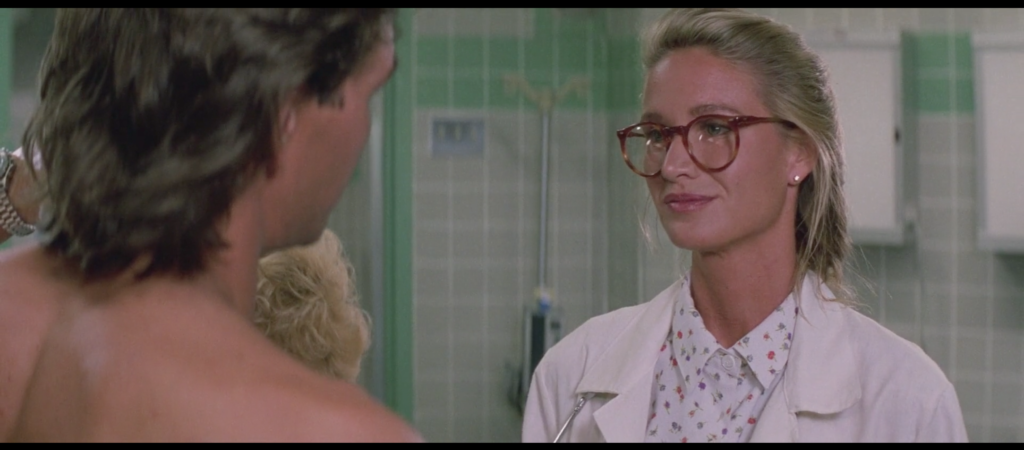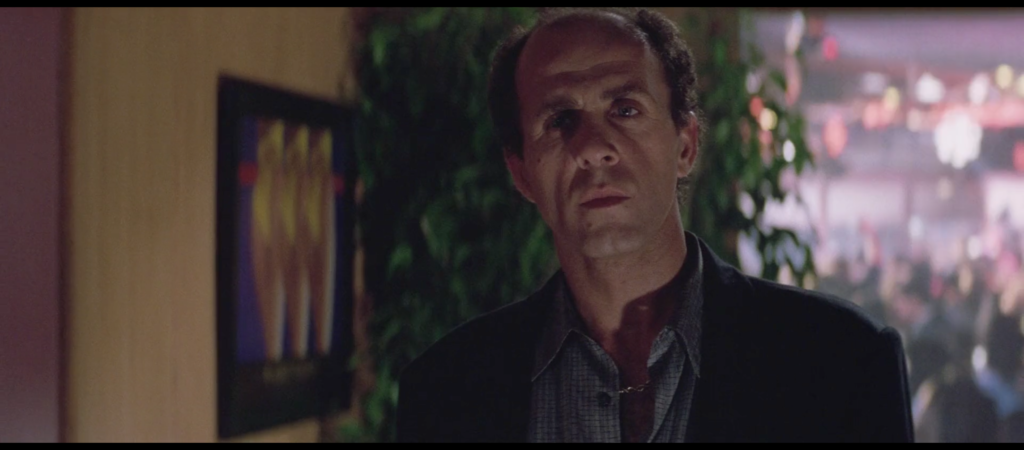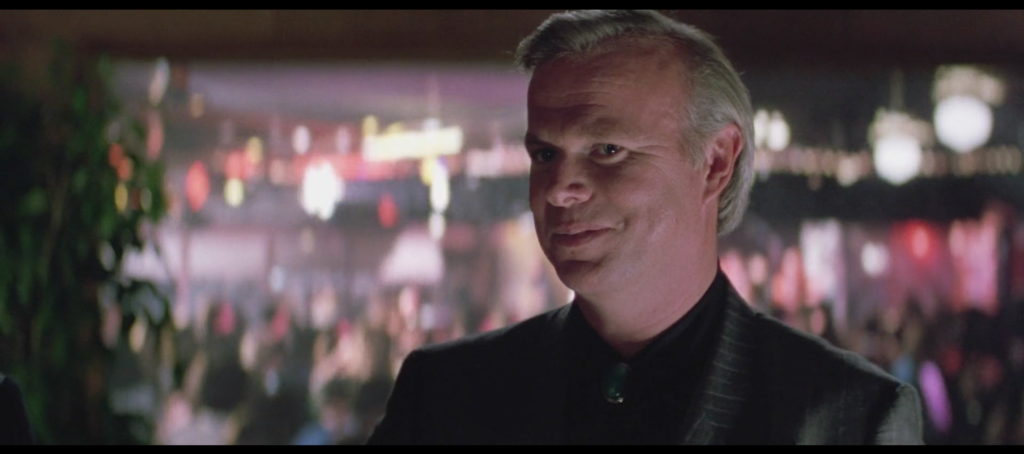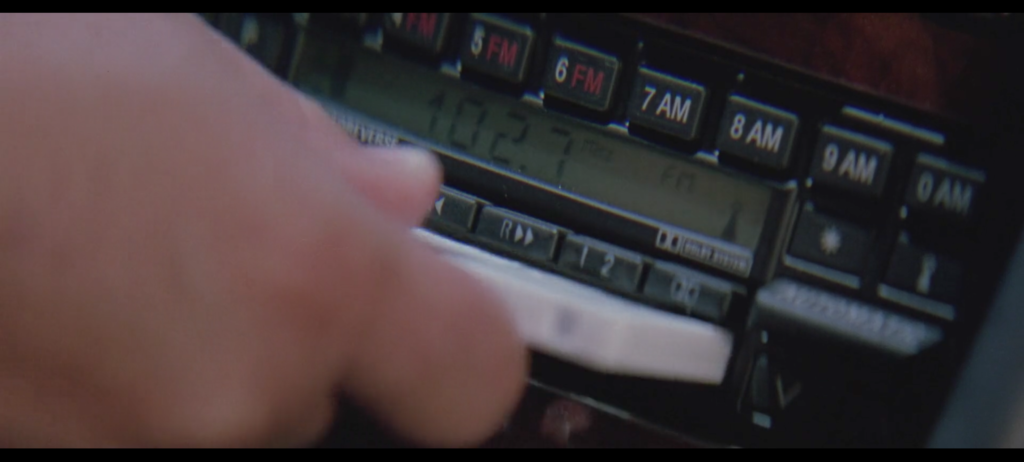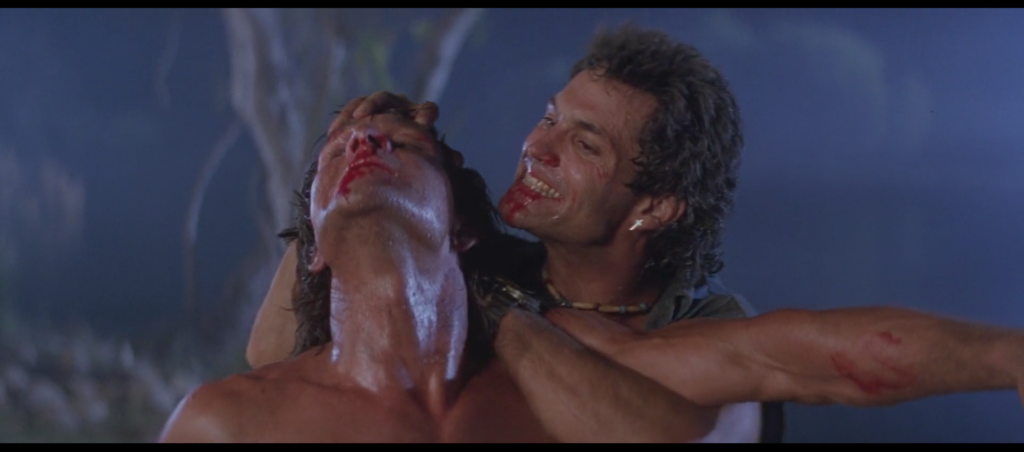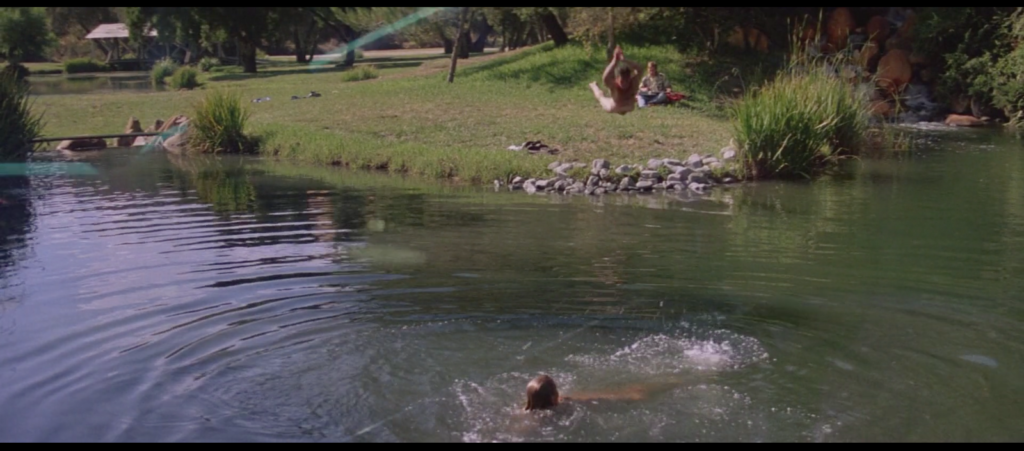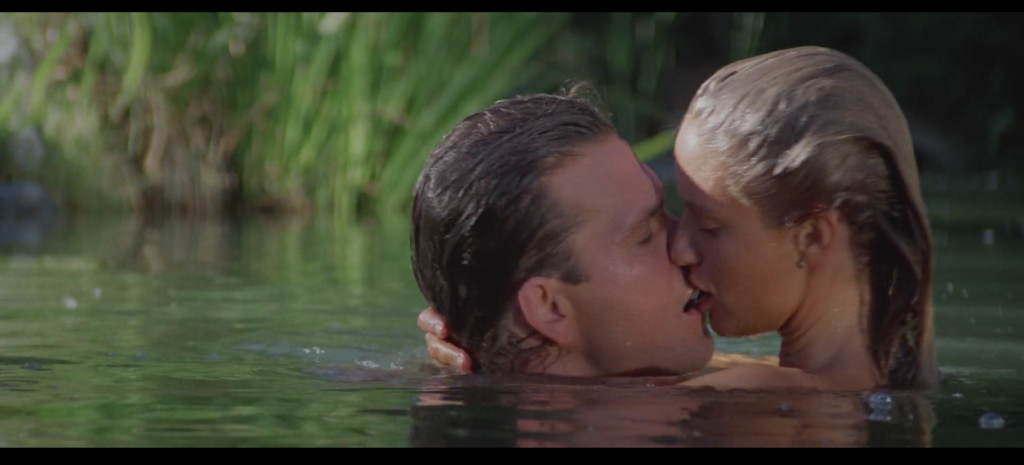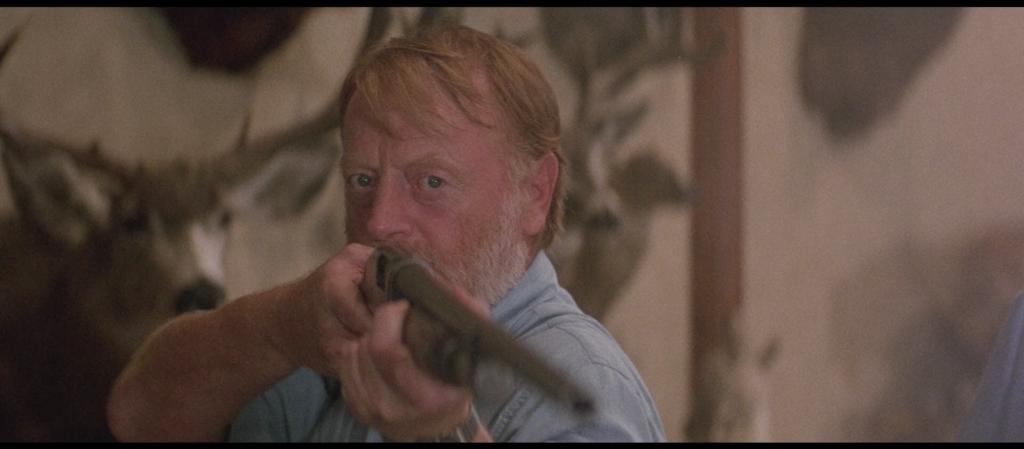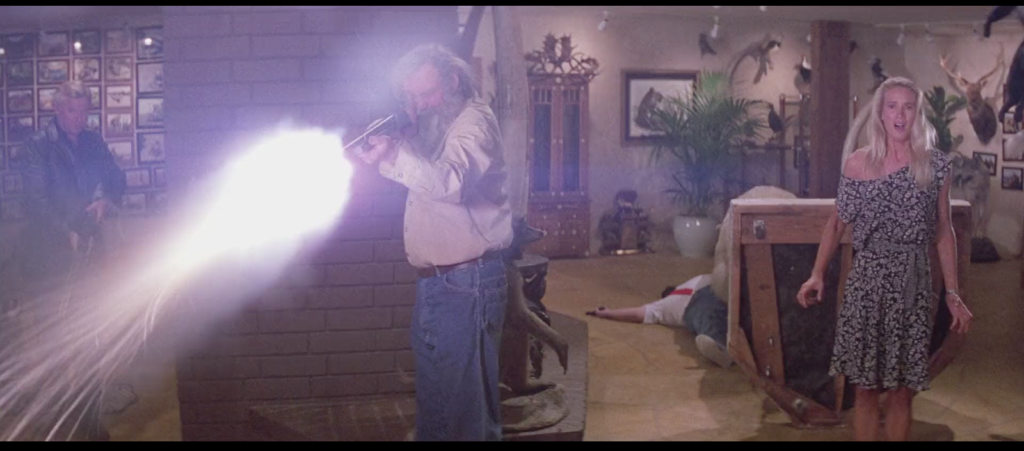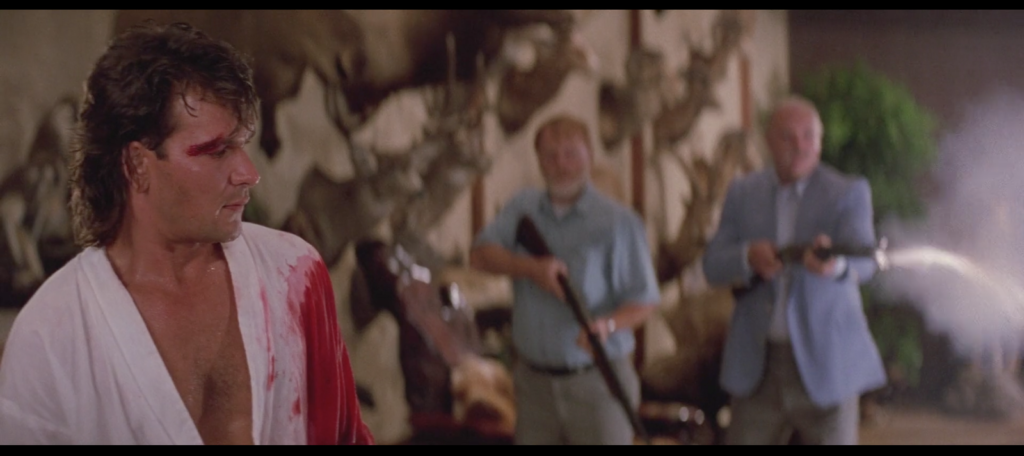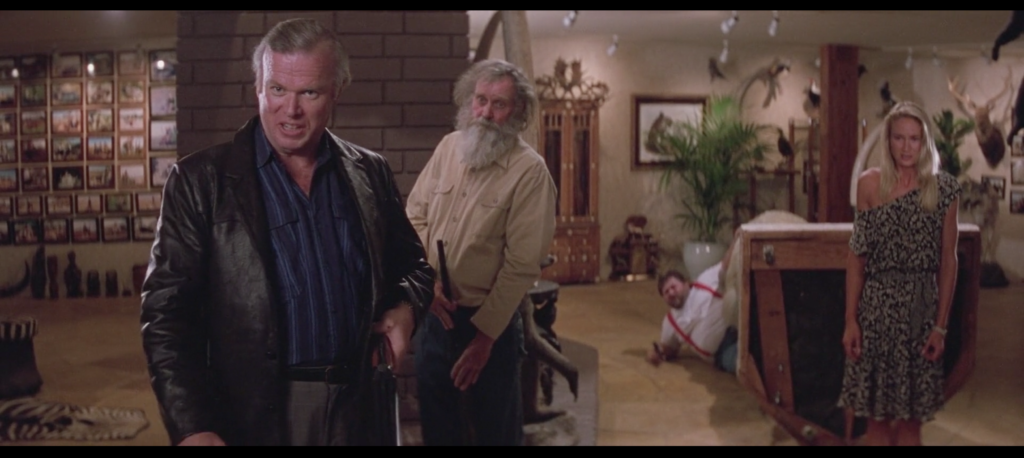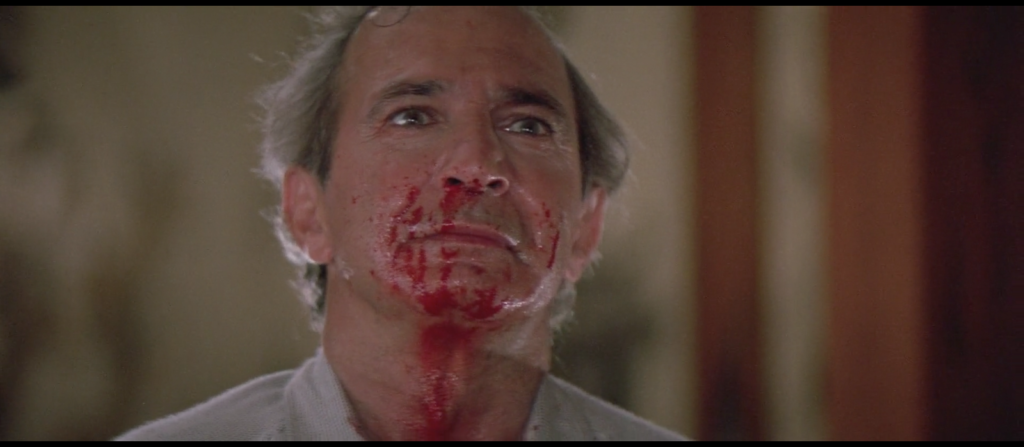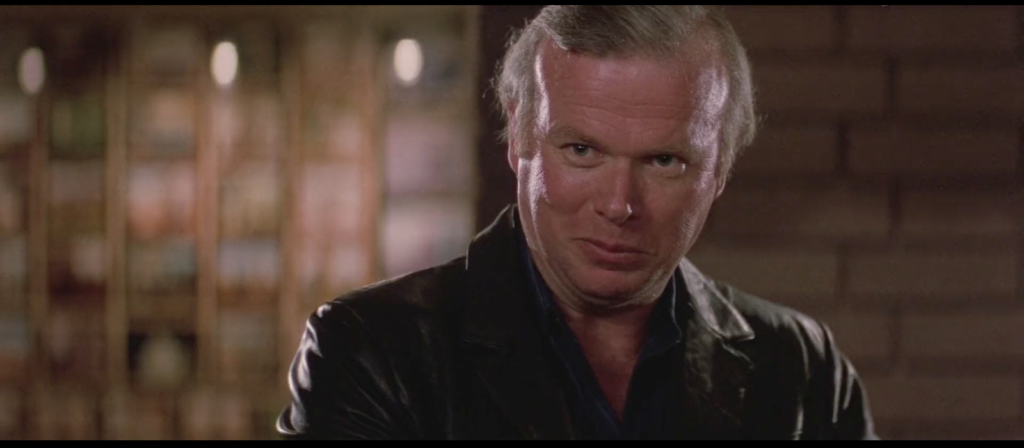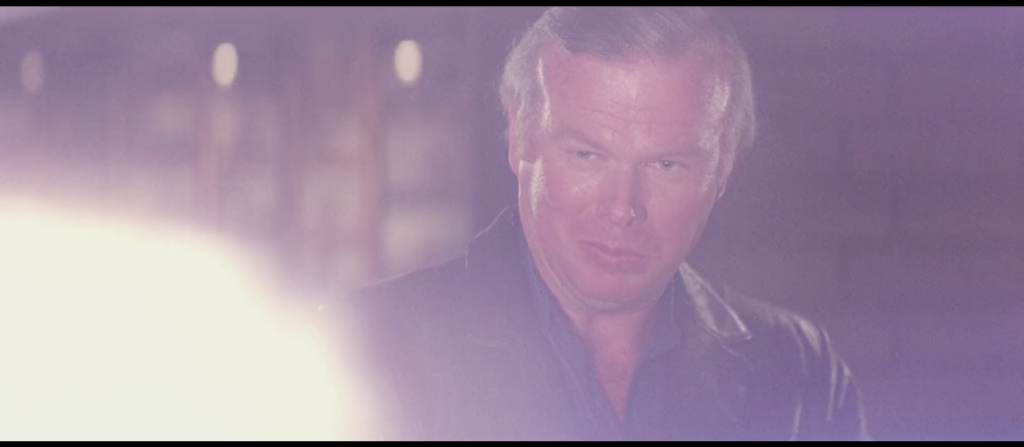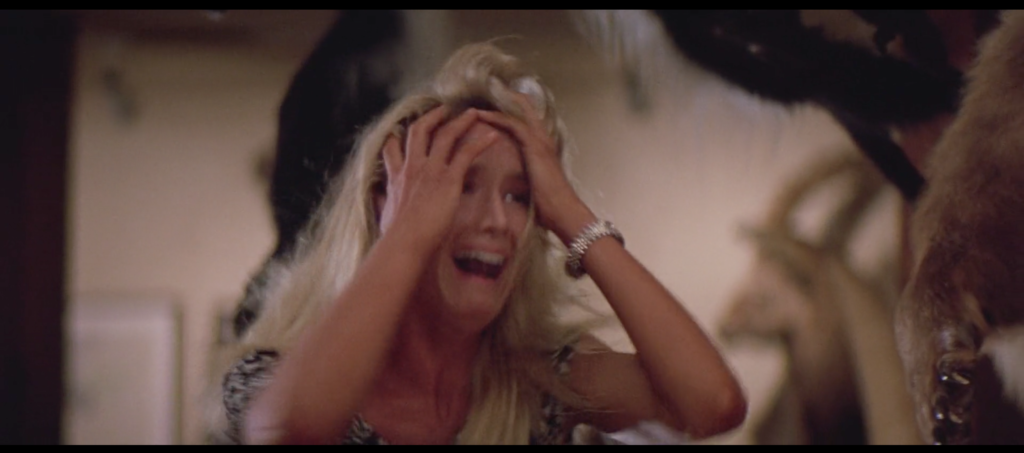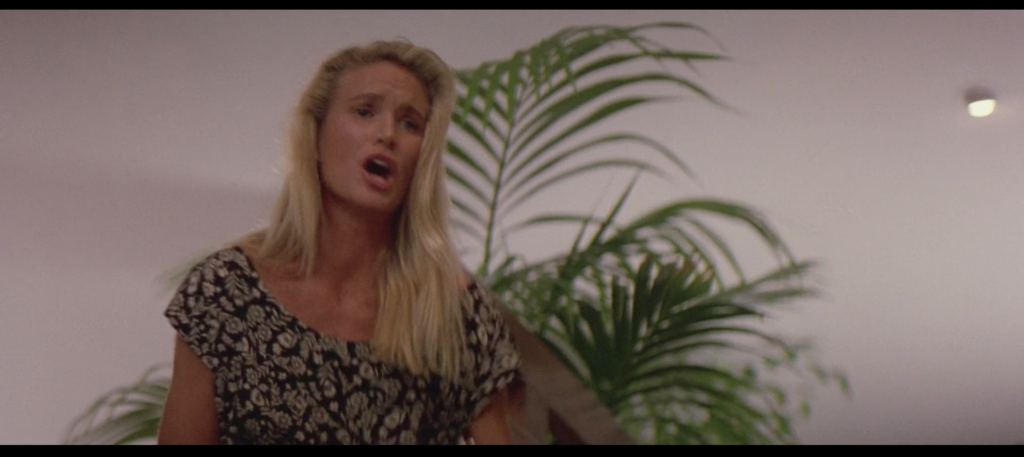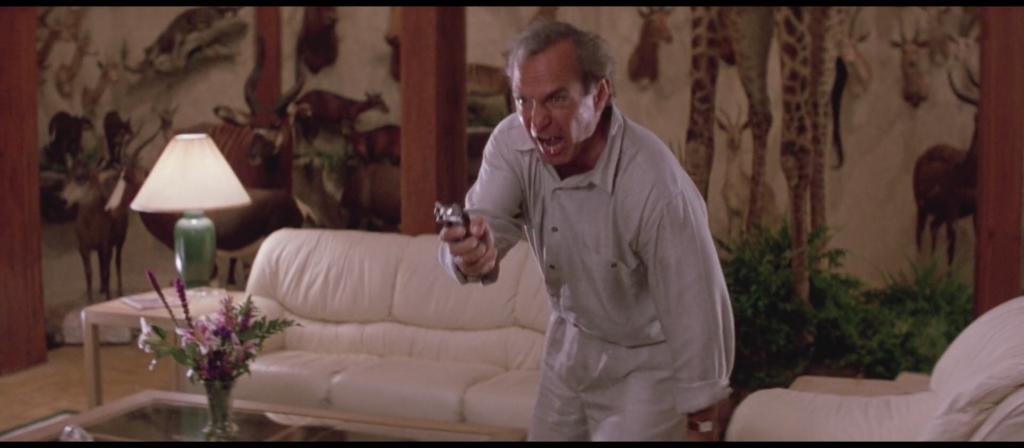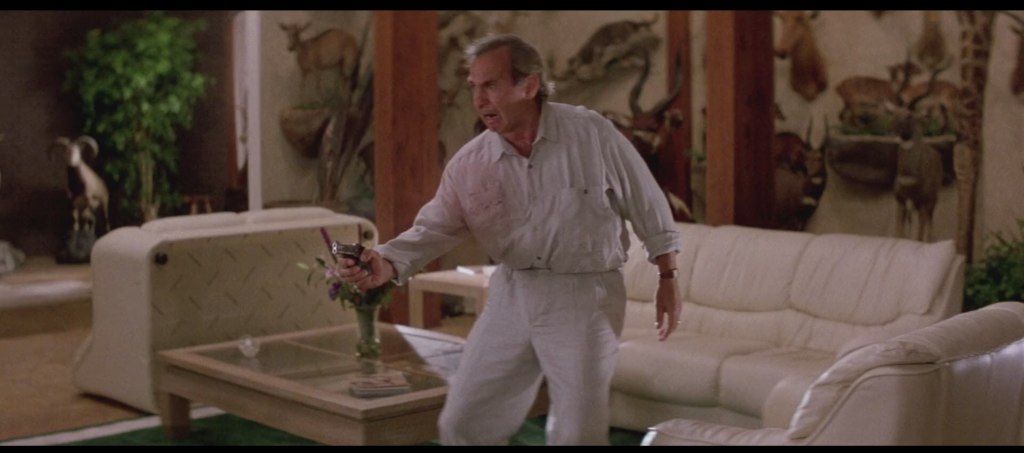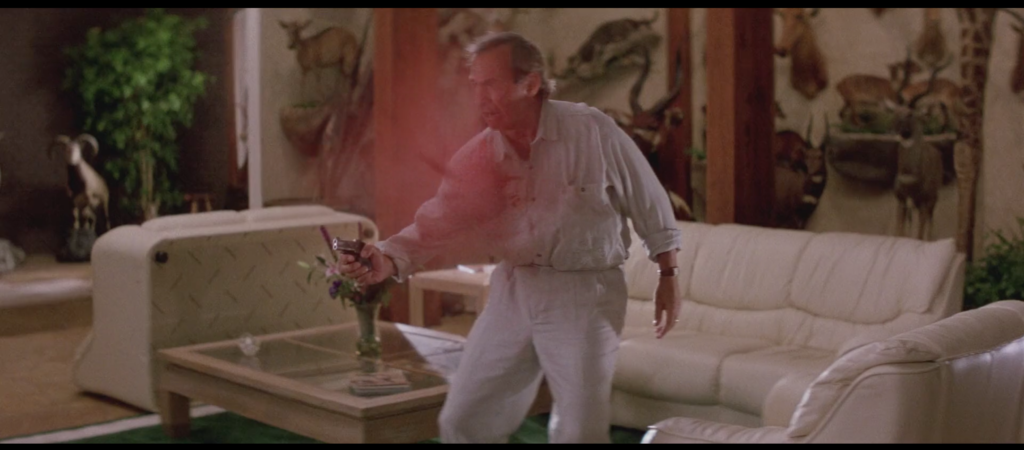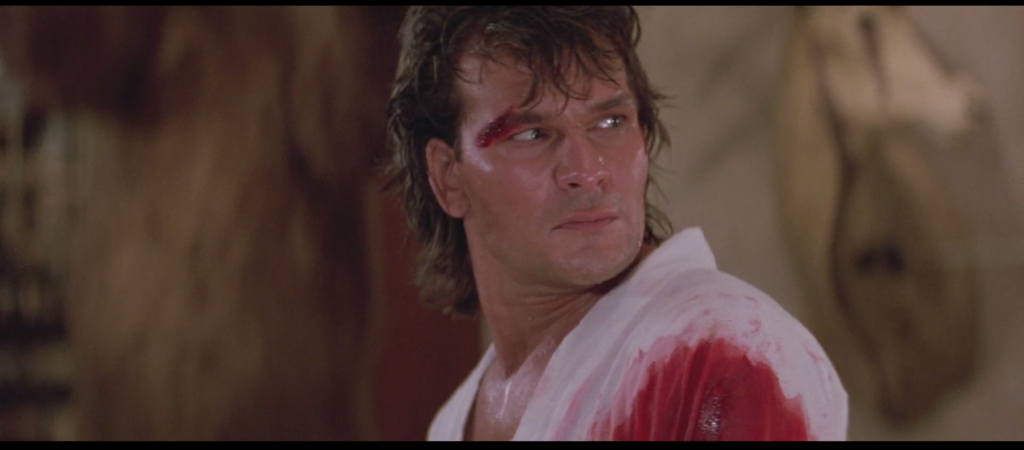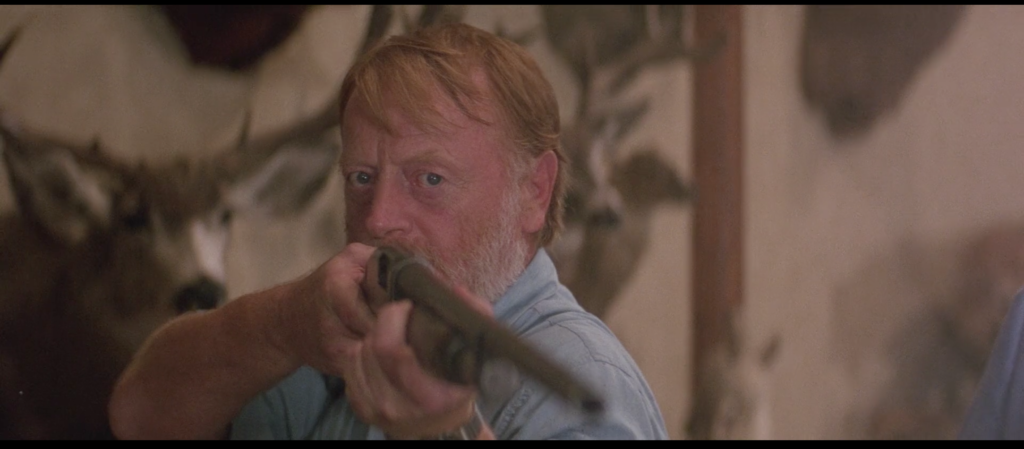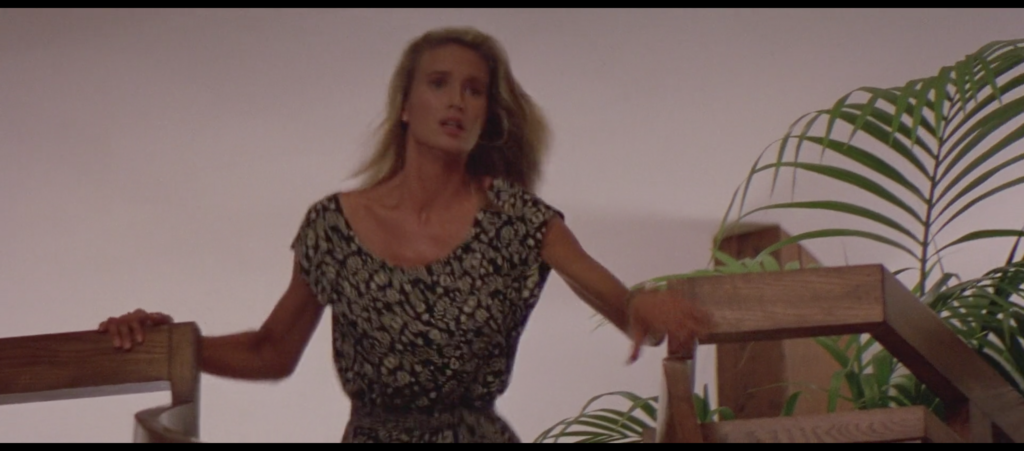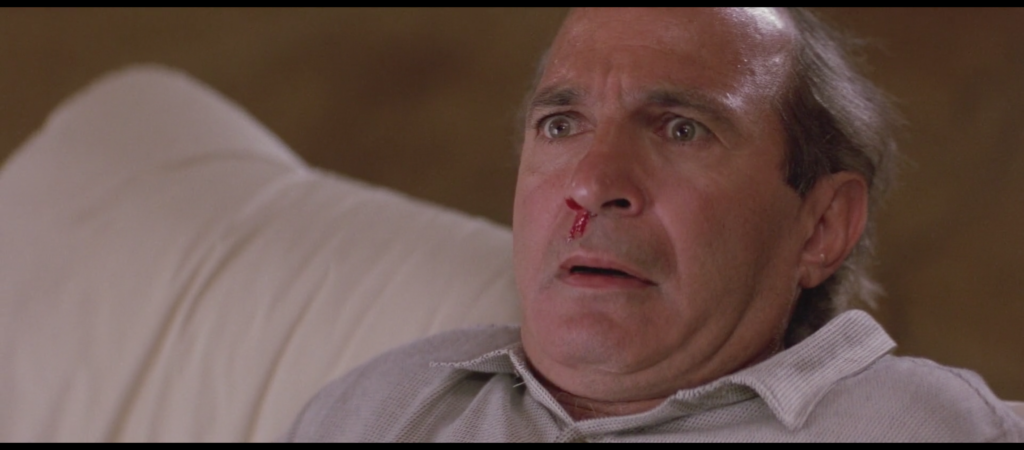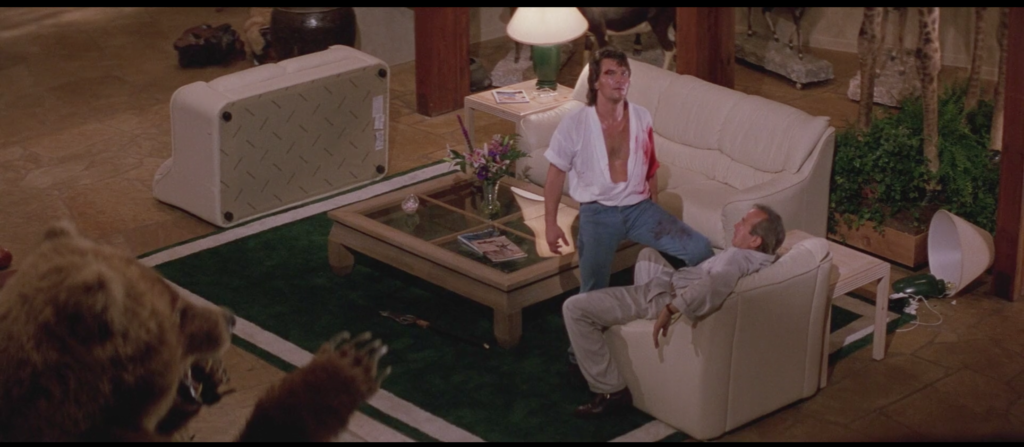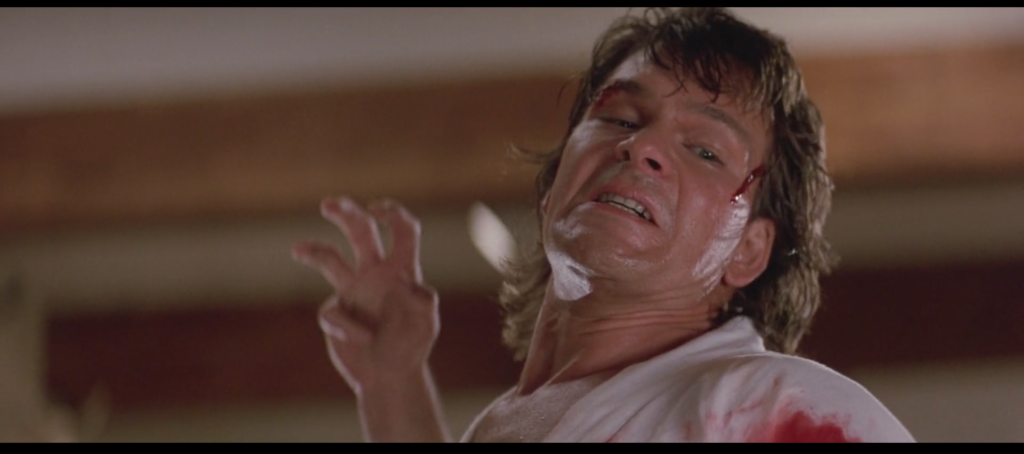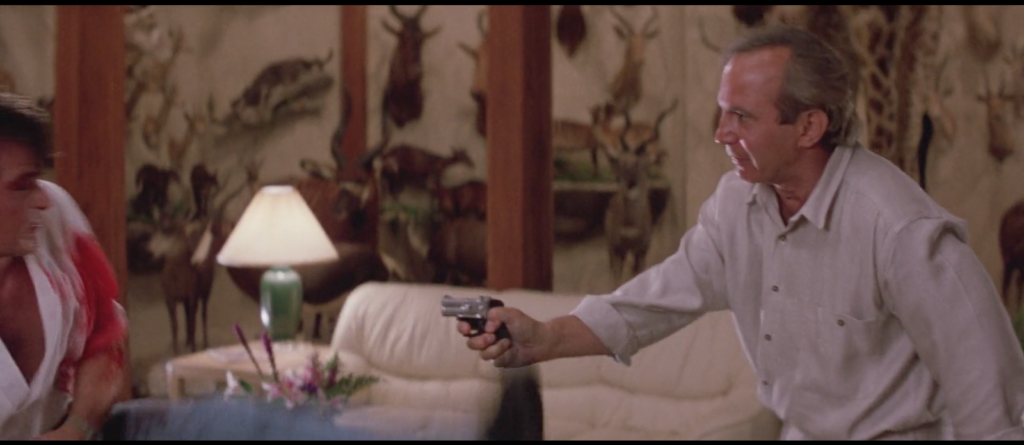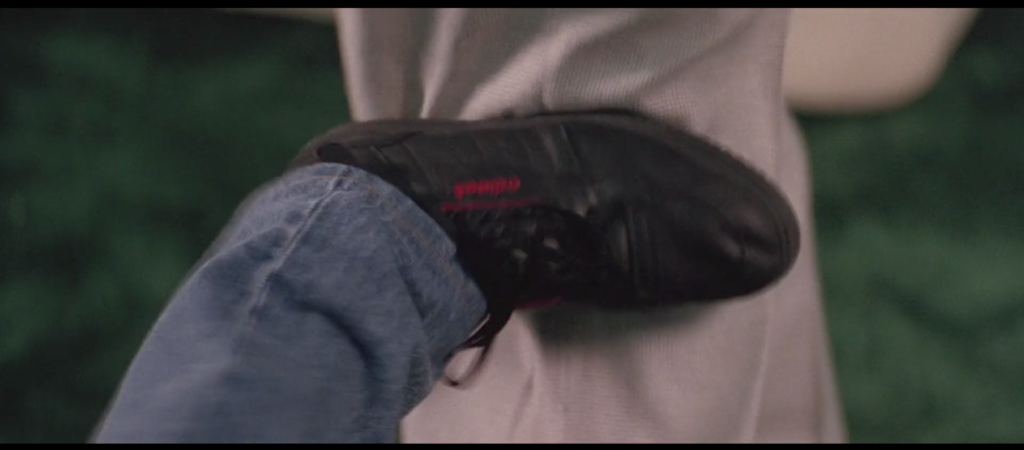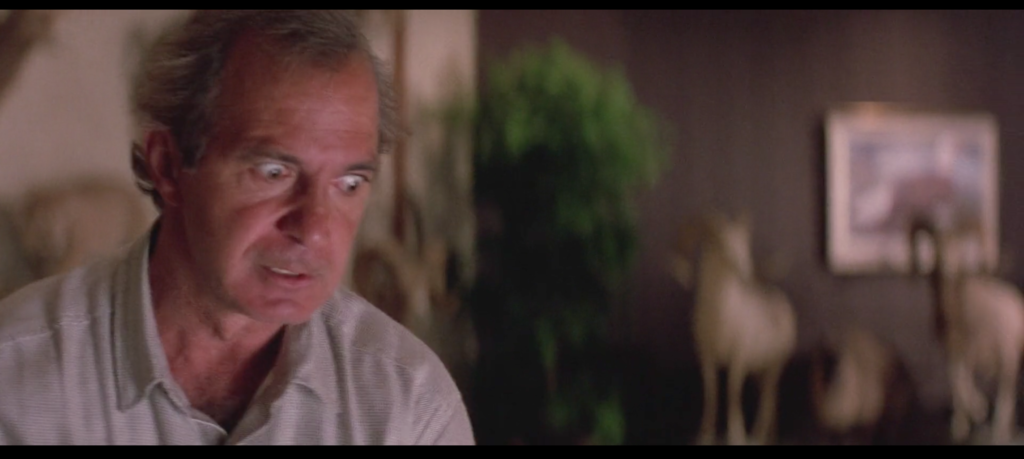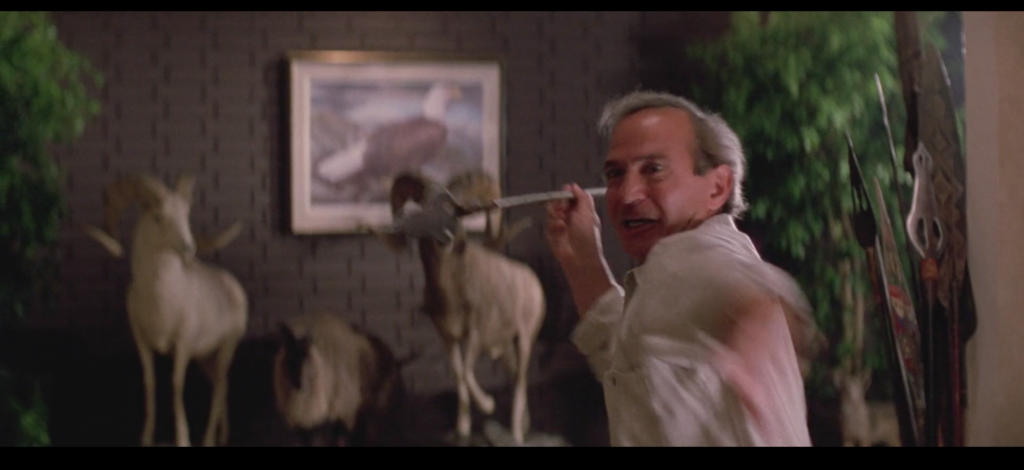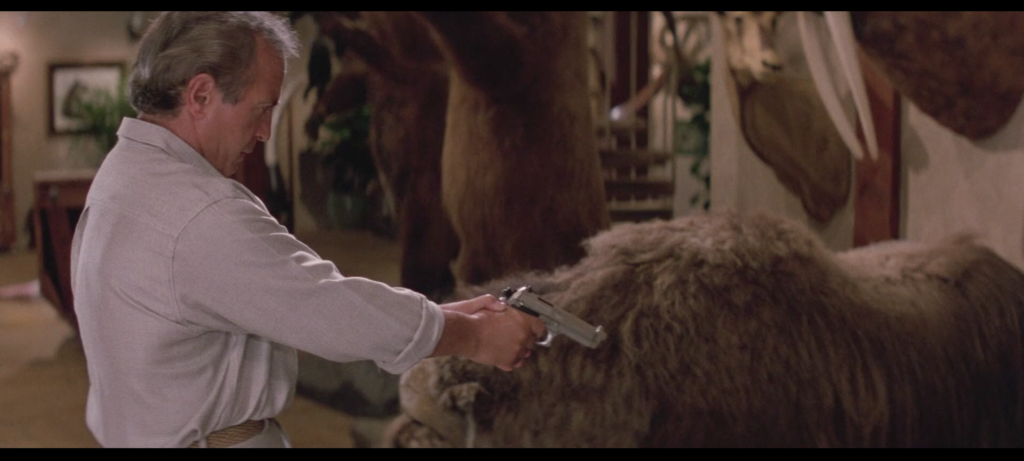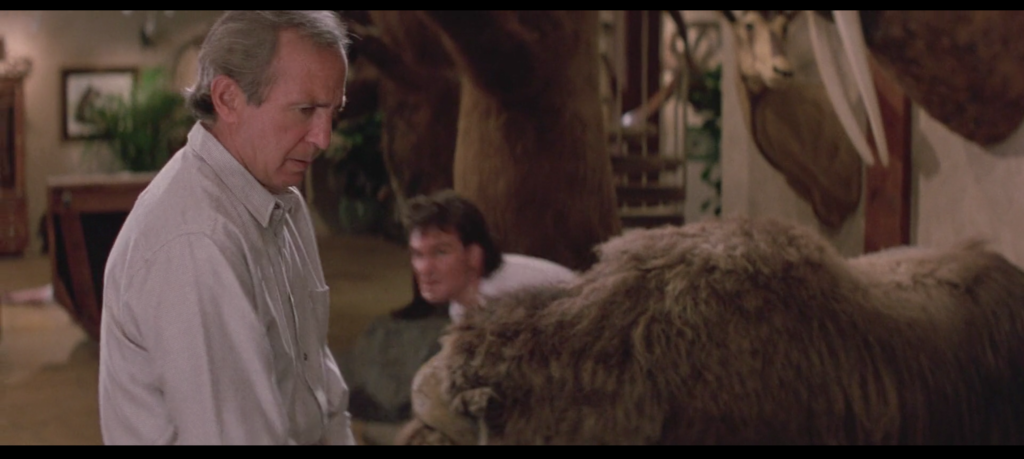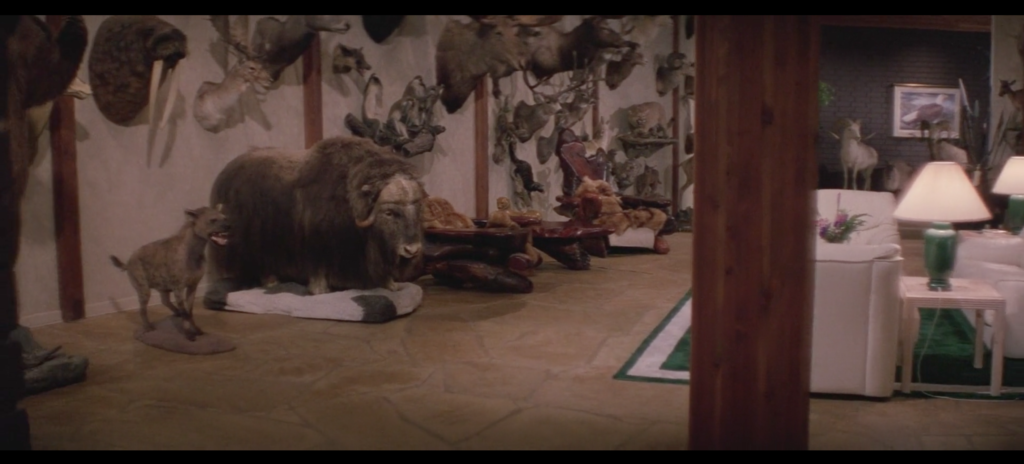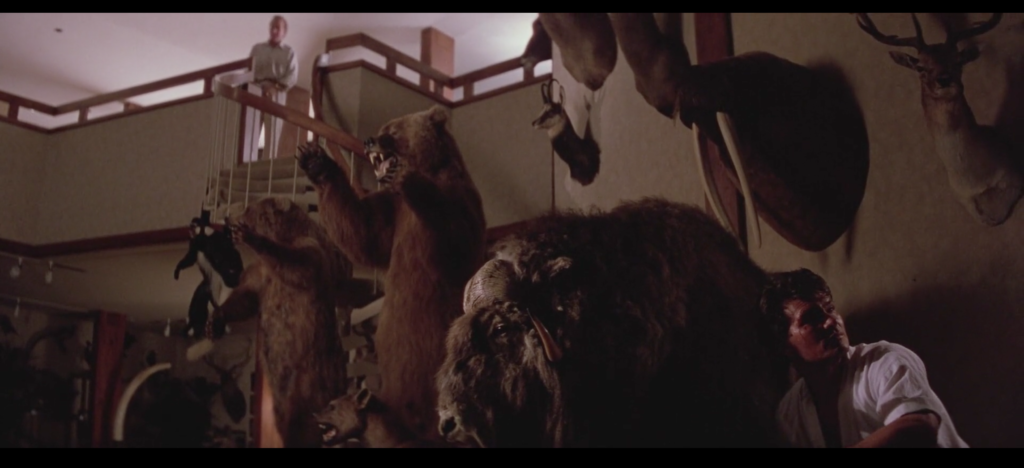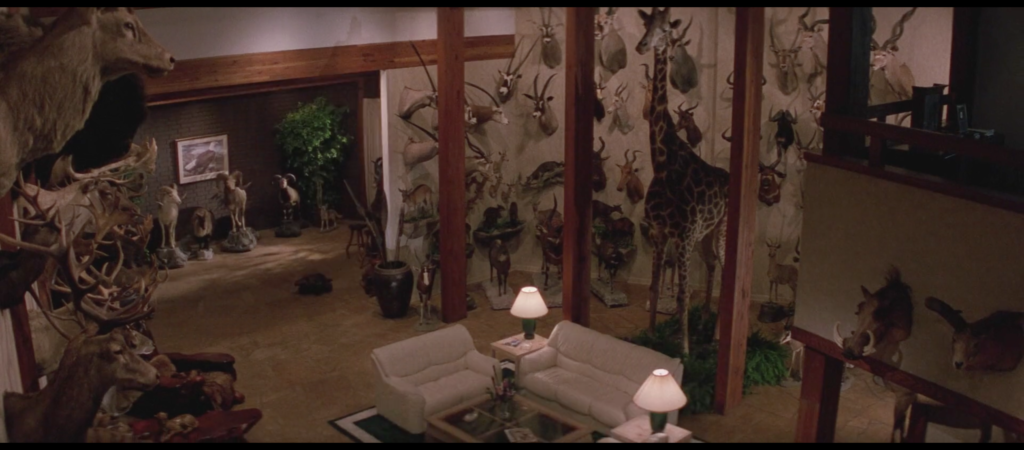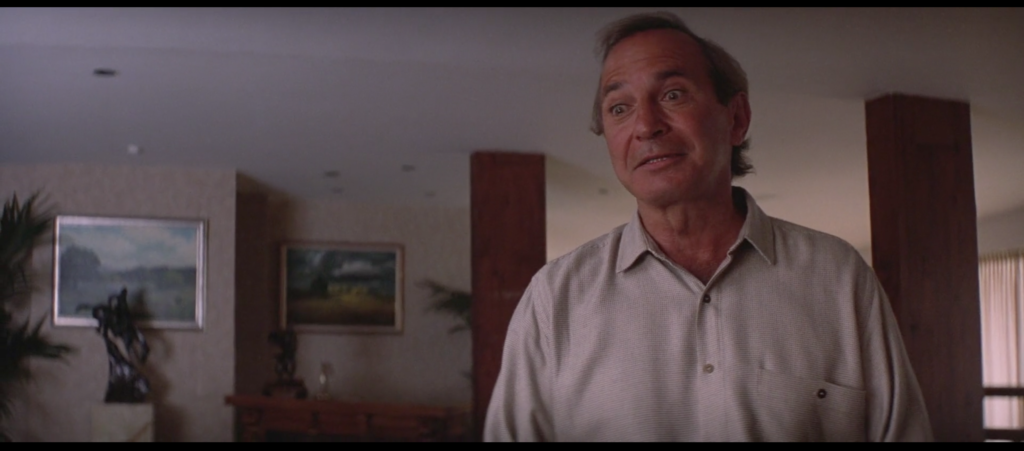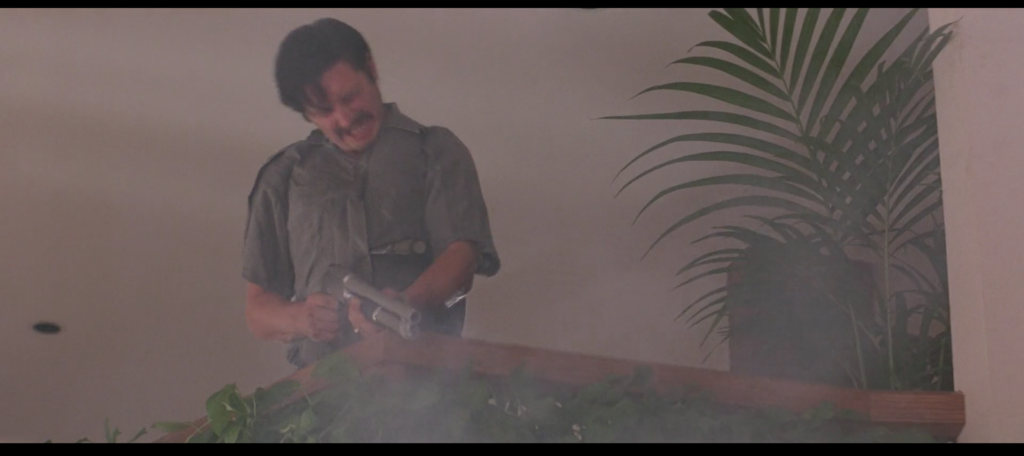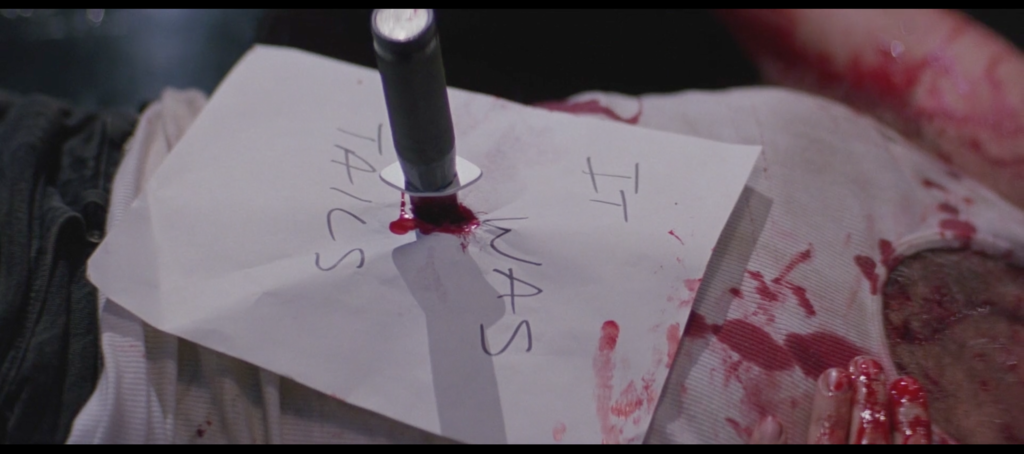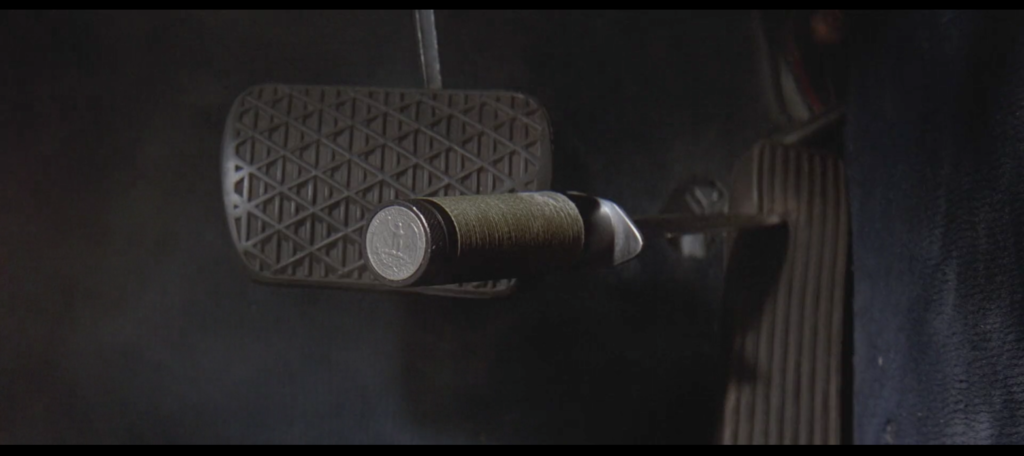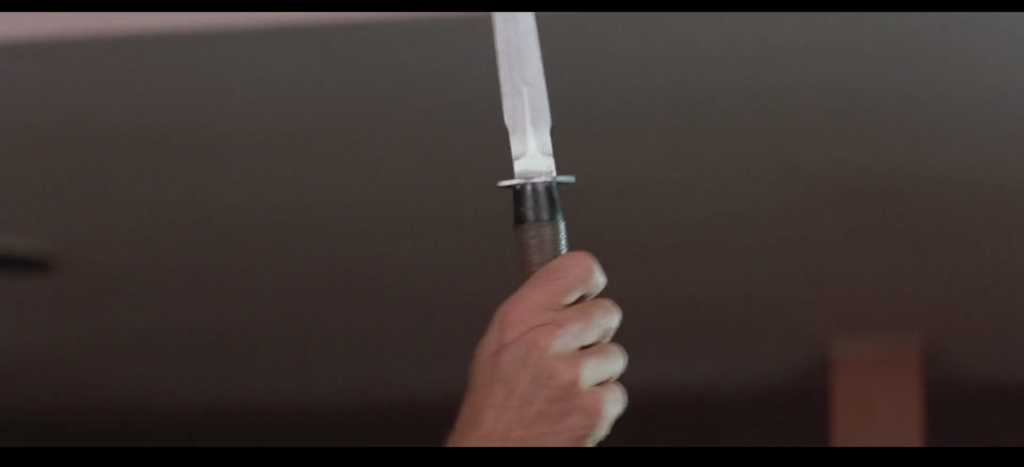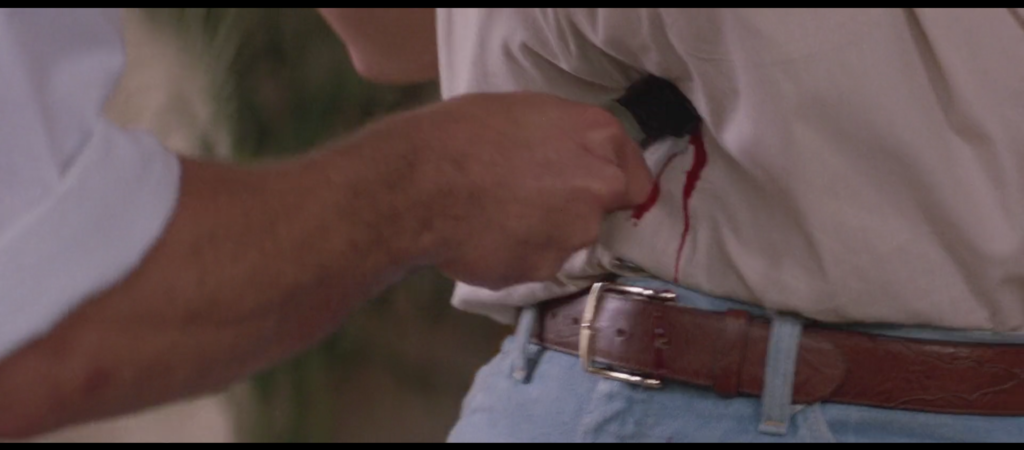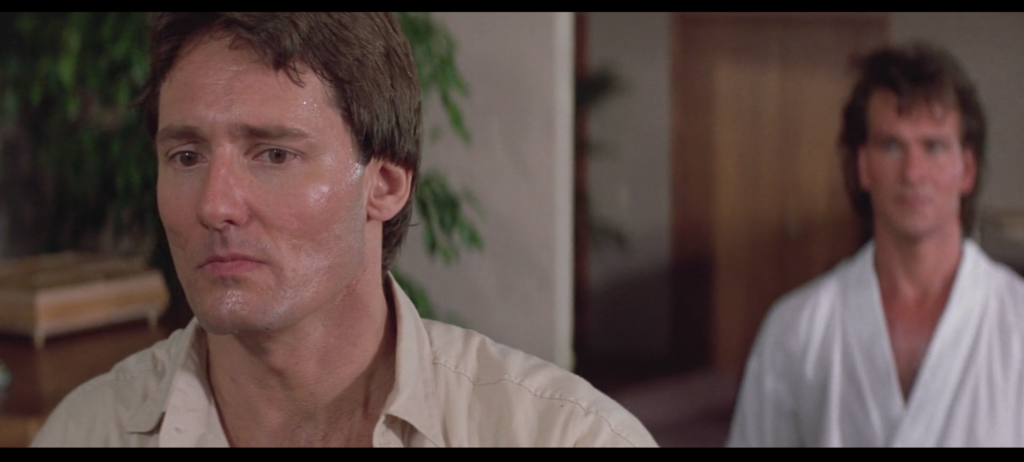Posts Tagged ‘dalton’
365. Dalton
December 31, 2019Dalton runs the show. Completely. It’s his way or the highway. What he says? Goes. He’s a philosopher—man’s search for faith, that sort of shit. He’s not a nice guy. He has three simple rules, but he’s only good at one thing: He never loses. He’s pretty much always better than they are. He’s never really been put down. He’s ready for trouble. He knows nobody ever wins a fight. He lives some kinda life. He’ll keep you in the good graces of the church. He appreciates his devoted fan club. He’s not facing anything he’s not used to, but it’s amazing what you can get used to, isn’t it? He killed a man in Memphis—ripped his throat right out—and he said it was self-defense at the trial. He’s got balls big enough to come in a dump truck. If you fuck with him, he’ll seal your fate. He takes his coffee black and leaded. He thinks it’s time for you gentlemen to leave. He’s fuckin’ Dalton, man. He wants you to be nice until it’s time to not be nice. He’s the best damn cooler in the business, and he knows pain don’t hurt.
When I first wrote about James Dalton, I focused on his notoriety. As the second most famous bouncer in the business, his reputation preceded him. That, and his youth relative to his mentor Wade Garrett, is what got him the gig that made Road House happen as a story. But when you get to know Dalton, really get to know him as we have over the past 365 days, it’s not fame that drives your affection. It’s familiarity. Spend enough time with Dalton and his personality becomes as dependable to you as a granddad’s pocketwatch. Over time Dalton begins to make sense to you the way any of your friends make sense. Do all the parts of their personality fit together neatly? Probably not. But you can see how to get there from here, usually. And the elements that really stand out as jarring simply rearrange the rest around them until the picture clears up again. All the contradictions resolve. All the flubs in the script become endearing quirks. You start to make sense of the nonsensical until you marvel that it ever didn’t make sense to you to begin with. Three parking scenes? Why, Dalton is a thorough man, that’s all. Dumping a polar bear on a guy? Did not also Christ demonstrate mercy? Some see shirtless tai chi and ask why; we ask, why not?
It isn’t really pain that hurts, in the end. It’s the uncertainty that attends pain. How long must I endure? How bad will it be, and will it get worse before it gets better? Give me answers and I can take it. Road House gives you the answers you seek—it’s just a matter of figuring out the right questions to ask, and Dalton is our guide to them. That’s the story of Road House, a film I’ve now written some 150,000 words about, give or take. Doing so is how I made sense of something that makes no sense. “If you think this sentence is confusing, then change one pig.” I did it, mijo, and so can you.
—
This concludes Pain Don’t Hurt. Thank you for reading.
364. Dr. Elizabeth Clay’s new life
December 30, 2019“You’re a bouncer.”
“Mmhm. Double Deuce.”
“Nice place. They send a lot of business my way.”
“I’m hoping to change that.”
“All by yourself?”
We get our first closeup of Dr. Elizabeth Clay on that last line of dialogue—”All by yourself?” Her smile at that moment is kind, but it’s the kindness of a skeptic trying to be polite with their skepticism. The Doc doesn’t believe Dalton will clean up the Double Deuce all by himself, though not because of anything Dalton has or has not done. She doesn’t believe anything worth doing can be done by oneself.
Think of the several times she tries to take Dalton down a peg. She does it when he talks about his job during their first date: “Somebody has to do it….Might as well be you.” Her doubt drips off every word, and while she’s quick with a rhetorical napkin, she can’t control all the spillage. What makes Dalton so special? In this regard, nothing that she can see.
Think of when she confronts Dalton about his escalating war with Wesley. “You don’t know him,” she warns Dalton; the implication is that he needs the knowledge she can impart. It has to be a team effort or it’s doomed to failure. Think of how she continues: “Who’s this for, anyway? Are you doing it for them? I don’t think so. You think you’re gonna save these people from Wesley? Well who’s gonna save them from you?” She shrieks that last line, because it gets to the heart of the issue here: Dalton’s messianism has no currency in her world. A doctor is always part of a team, and no doctor saves a life singlehandedly. Again, what makes Dalton so special? In this regard, still nothing.
This is what will make Dr. Elizabeth Clay the ideal mate for James Dalton as their lives continue after the closing credits roll. She will temper his idealism with pragmatism, leaven his savior complex with the value of teamwork, of solidarity between the likeminded, of delegation and deliberation.
The beauty of it is that unlike Brad Wesley, Dalton is a person capable of listening and learning. Certainly Doc is attracted to fixer-uppers or she’d never have married Wesley in the first place, though given their age difference there were obviously other dynamics at work. (Elizabeth is an orphan, for instance, and as Wesley’s boys can attest he’s a dark father figure.) And Dalton is a learner, a seeker. His degree from NYU shows he’s searching for answers, and despite having boiled down his knowledge into three simple rules there’s nothing to suggest he’s not open to learning more. Indeed, it’s precisely when he gets his back up and refuses to listen to Doc that things start going poorly for him. We’re meant to see that as anomalous; the real Dalton, however much pressure he puts on himself to “never lose,” listens.
And what does Dalton offer the doctor, besides a beautiful smile, remarkable hair, a bod that won’t quit, and a teaching opportunity? The chance to step outside herself and experience a side of life she’d kept at arms’ length. The Double Deuce sent a lot of business her way? Well, why not learn why? What drives a man to commit to bodily stopping trouble? What kind of mind expands that remit to an entire town? She can learn at her leisure even while tempering Dalton’s hard edges, while he does the same for her.
It’s a beautiful relationship when you really look at it. Two people, so different in so many ways, but a lock and a key are very different too. It’s the difference that makes it work.
360. Oscar, or the path not taken
December 26, 2019This handsome devil right here is Oscar. He owns the Bandstand, the New York nightclub where Dalton’s working at the beginning of the film. As such he serves as two separate object lessons. First, he provides us with a solid point of comparison for just how creepy Frank Tilghman looks in this opening scene. Take a look at the man above, then at the man below, and consider what it takes to make the man above look like the more pleasant alternative.
The second lesson pertains to something Dalton says moments before Oscar enters the room: “When the job’s done I walk.” He says this to Tilghman as a condition of taking the job at the Double Deuce; this is worth keeping in mind during the film’s final reel, as just up and walking away is not unheard of for Dalton and presumably for his mentor Wade Garrett too. The only issue is whether fixing up the Double Deuce but leaving Brad Wesley in control of Jasper constitutes the job being done. (I personally lean towards no, but then I’m not a cooler.)
Point is, you can look at the Bandstand—all that gold plastic, all those hundreds, no chickenwire around the stage—and deduce that, despite the fact that he was stabbed moments earlier, Dalton has finished the job. Certainly his bouncers are competent enough to help escort the knife nerd who cut Dalton outside and then just…prevent him from returning—an ideal bouncing maneuver according to Dalton’s Three Simple Rules. There’s nothing left for those men to learn from Dalton, ergo he can take Tilghman’s offer and split on the spot.
But there’s a world out there somewhere in the multiverse where Dalton continues to work at the Bandstand, fending off further attacks from the knife nerd. Perhaps he’s a low-level drug runner for one of the Five Families, and the mafia tries to move in on Oscar. Maybe Dalton winds up having to fight off various assassination attempts from hardened killers instead of Wesley’s goon squad. Maybe a horse’s head winds up in his bed. Dalton vs. the mafia is a movie I’d watch, and a prequel we deserve.
359. But he can’t be a man cuz he doesn’t smoke the same cigarettes as me
December 25, 2019Before he pops in a cassette and listens to the tunes of his choosing on his way out of New York, Dalton’s radio is tuned in to 102.7, WNEW, the home of classic rock for a generation—a freeform rock station before “classic rock” even existed, back when “classic rock” was just rock—in New York. Scott Muni, Scottso, The Professor. Pete Fornatale. Carol Miller. That sort of shit. That’s the station I grew up listening to, via my father and then eventually on my own. For a while in the 1990s and early 2000s, I believe, it was a talk station, home of the shock jocks Opie & Anthony. Today I have no idea what it is.
But I cherish the idea that Dalton and I might both have listened to the same radio station at the same time. Why? Because how else am I going to connect with Dalton as a person, really? There’s the philosophy degree I suppose; I took a year of philosophy as an undergrad and remember it relatively fondly, though if asked me what I learned I probably couldn’t come up with much better than Dalton’s self-effacing “Man’s search for faith, that sort of shit.” But I’m not a dancer, I’m not a fighter, I’m certainly not a cooler let alone a bouncer, I don’t practice tai chi, I’ve never torn a man’s throat out, although I can think of one ex that was none too pleased I’ve never had sex with a woman while her ex actually watched, et cetera. The possibility that I listened to the same broadcast of “Roundabout” or “Suite: Judy Blue Eyes” or “Locomotive Breath” as James Dalton, the best damn cooler in the business? How could one ever put a price on something so precious?
358. Jimmy, Revisited
December 24, 2019“I used to fuck guys like you in prison.” This much we know about Jimmy. Or do we? Picture growing up as Brad Wesley’s unacknowledged bastard son. Absent father, mother who doesn’t understand him. He starts hanging out with the wrong kind of kids, starts acting up, getting into trouble. A few scrapes with the law, a few misdemeanors, the specter of juvie on the horizon. Then it happens: he gets pinched for a big one, grand theft auto. He does time. And what happens to a handsome young man like Jimmy in prison? I don’t want to say it but I think we all know.
So. “I used to fuck guys like you in prison.” Is that a fact? Or is Jimmy identifying, in Dalton, the traits he grew to hate in himself, the traits he feels made him a victim, something he’s sworn he’ll never be again? The good looks, the great hair, the attitudinal softness, and most importantly the fact that he’s being beaten in this fight. He deserves what he’s gonna get, just like the old Jimmy deserved it, the Jimmy who existed before this new Jimmy emerged, harder and stronger and ready to dish out everything he’d been made to take.
356. Dip
December 22, 2019I’m saying this in a voice that approximates that of Ash, the android—artificial person, excuse me—in Ridley Scott’s Alien when he says of the titular creature “I admire its purity”: I admire Road House‘s fecundity. Road House is a film deeply committed to giving and being more—more than you expect, more than it needs to be. It exists to run over the Ford dealerships of your mind with a monster truck, one in which it has balls big enough to come.
I can think of few clearer demonstrations of this than the way the film chooses to leave us with its protagonists, Dalton and Doc. How best to convey, as the film must, that they bridge their differences (perhaps with the corpse of Brad Wesley) and live happily ever after? Our friend Rowdy Herrington could have shown them dancing together at the Double Deuce, a choice that would have been all the easier to make given that the credits roll over, you guessed it, people dancing at the Double Deuce. That’s where Cody’s performing “When the Night Comes Falling from the Sky,” after all; couldn’t James and Elizabeth rock out into the sunset with him?
Ah, but they do! Our final image of our hero and his lover does indeed show them accompanied by Cody and his guitar. Only they’re not at the Double Deuce, they’re by the water outside of Emmet’s place. And Cody’s sitting on the grass, not on stage.
And they’re bare-ass naked.
Road House ends the story of Dalton by showing him skinny dipping with Dr. Elizabeth Clay. In fact it shows him running across the grass toward the water, cheeks to the wind, then doing a splendid high dive right into the water, at which point he and the good doctor make out, and make out enthusiastically. Like, you can imagine what’s going on beneath the surface of the water, that’s how enthusiastically. They’re young(ish) and in love and hanging out naked with their friend the blind white blues guitarist, and all is right with the world.
Always there is another trick up Road House‘s sleeve, always there is some new wonder to marvel at. This time it happens to be the main characters swimming around with their junk out with Jeff Healey in the background, and this time it happens to be the final chapter in the saga of Dalton, the best damn cooler in the business (as of that one morning when Brad Wesley flipped his coin and it came up tails). After all that death, after all those blows to the head, after determining whether a hobbyhorse has a wooden dick, after the three simple rules—love, wet and wriggling and real.
349. “This is our town, and don’t you forget it.”
December 15, 2019Red Webster, Emmett, Pete Strodenmire, and Frank Tilghman have had enough of Brad Wesley. I mean, to put it mildly. Together they shoot him to death, though not before Tilghman turns Wesley’s “This is my town—don’t you forget it” back at him. The two men exchange a sort of slight smile after that. It’s the smile of men with secrets, if you ask me, though it would pass for an expression of resignation on one hand and triumph on the other to the layman.
Be that as it may.
The thing that strikes me about Brad Wesley’s death today is how quickly it follows the murder of his goons. The bodies of Morgan, O’Connor, Ketchum, and Pat McGurn are still warm, and Jimmy is probably just a few miles downstream, and blam blam blam blam, no more Brad Wesley. They were the iron fist with which Wesley ruled Jasper, from JC Penney to shining Fotomat. Take them away and the man is revealed as a paper tiger, albeit one capable of nearly murdering the best damn cooler in the business.
To put it another way, Brad Wesley fell when his goon squad was supplanted with another. Had Red, Emmet, Pete, and Tilghman joined forces earlier, perhaps they could have out-muscled Wesley’s muscle, or at the very least outgunned them. All they lacked was a fighting spirit, and Dalton gave that to them. It already was their town. All they had to do was rise up and claim it.
348. Death and the Doctor
December 14, 2019It’s hard to describe the cocktail of conflicting emotions Dr. Elizabeth Clay must be experiencing in this moment—the moment when her uncle, Red Webster, shoots her ex-husband, Brad Wesley, to save the life of her boyfriend, James Dalton. Just re-read that sentence and imagine yourself in your shoes. Here’s the kindly old man who raised you, and whom you moved back to Jasper after leaving the place so you could take care of him in his old age. He’s got a gun, and he’s just used it to shoot the man who—this is conjecture, but justified conjecture—you used to love, until you saw his ugly side. I’d imagine, given what we see of his treatment of Denise, that physical abuse was involved, since I doubt Denise was his first victim and since it would explain why the Doc skipped town instead of merely divorcing him. This man, with whom you once envisioned your future, has used your appearance on the scene to pull a gun with which he intends to shoot your current love interest. Only he’s not quite your current love interest at the moment, is he? The night before you watched him murder a man, tearing his throat out with his bare hands. Earlier today he tried to physically drag you out of town with him before you broke free and told him you had no intention of going anywhere with him. You’ve arrived just in time to watch him decide not to repeat this act, this time tearing the throat out of your ex-husband. Maybe you felt relief in that moment, but only briefly. Brad ruined it by pulling that gun, and Uncle Red ruined it by firing his. Three of the most important men in your life, locked in a dance of death.
And of course, it’s not over yet, no matter what Brad said. Three more men will put bullets in his body before he finally collapses through a glass table and dies. They include your boyfriend’s nominal boss—the reason this feud started—and his nominal landlord—who provided him with the place where you and he first made love. They also include a Ford dealer whose dealership you watched Brad Wesley demolish. Afterwards you and he had a talk, during which you attempted to appeal to the better angels of his nature, to no avail. The last thing he said to you was a threat against your boyfriend, right there near the rubble of Strodenmire Ford. The last thing he’ll ever say to you was that threat against your boyfriend, thanks in part to Strodenmire, who is participating in Brad’s murder before your very eyes.
And you abhor violence, don’t forget that. You’ve mocked Dalton’s tough-guy posturing to his face, on your first date no less. You broke up with him, kind of, because of the murder he committed last night. So you’re watching your own worst nightmare play out, again, involving men you’ve cared deeply about.
If you were Dr. Elizabeth Clay, could you ever recover?
347. “It’s over!”
December 13, 2019Oh Brad, when will you learn. In the time it takes for Wesley to grab his fallen gun and turn it on Dalton while Dalton is distracted by Dr. Elizabeth Clay’s arrival, Doc has the chance to scream “No!” and Wesley himself gilds the lily by shouting “It’s over!” Which it is, but not in the way he intends.
It’s over because Red Webster, Dr. Elizabeth Clay’s uncle, has mortally wounded her ex-husband in order to save her (ex?-)boyfriend. That’s one more thing Wesley allows to happen because he’s too busy bantering to pull the goddamn trigger. It’s one thing to be chatty when you’re roughing up one of your own hapless employees; O’Connor isn’t going to put up a fight while you call him a messy bleeder, and none of your other goons is going to come to his aid.
But Dalton is a different story—a story of kindness, of friendship, of being the best damn cooler in the business. He’s made friends in this town. And though perhaps Brad Wesley can be forgiven for not expecting five of them to suddenly materialize in his basement, four of them carrying shooting irons, why take a chance?
346. The Arrival
December 12, 2019The first of several unexpected visitors to the Wesley estate this fine morning—second if you count Dalton, but the goons were clearly expecting him—is Dr. Elizabeth Clay. This raises some questions. How did she know to come here? Did she know what she would find? Was she directed here by some staff member at the Double Deuce who put two and two together vis a vis the corpse on the bar? If so, why didn’t any of them come with her? Did Jack and Hank and Younger have better things to do? Were they just not on duty yet? Or did word spread through the town grapevine? How would that work, given that Dalton’s assault on the compound takes six minutes from start to finish? Did she arrive with the four village elders who will, a few seconds from this moment, murder Brad Wesley with shotguns? If so, why do they all enter the room from different directions? And how did they find out what was going on at the mansion? Was there a disturbance in the old-coot Force? Back to Doc for a second, what has she come to do? Stop Dalton? Stop Wesley? Stop them both? Did she blow right past the four dead bodies on the ground floor of the house, or did she stop to attempt triage and treatment before realizing she was too late? What is she feeling right here, right now, at this moment? Is she glad Dalton decided not to rip Wesley’s throat out, a decision he makes just before she arrives and thus without the need for her opprobrium to convince him? Is she worried Brad will take advantage of this lull in the action? Is she concerned, at all, for herself? If so, which man is she worried about? “You’re gonna save these people? Well who’s gonna save them from you?” Remember that? Remember her telling Dalton where to shove it when he attempted to convince her to leave town with him, earlier this very morning? What changed? What does Dalton feel when he sees her? Relief? Guilt? Gratitude? Shame? Vindication? And Wesley, what about him? Is he solely concerned with exploiting how Dalton has let down his guard? Does he wonder if Elizabeth came there to save him? Would he care if she did? Does he harbor hopes of a reunion once Dalton is out of the way? What are we to take from the fact that he only looks at Dalton in this moment, not at Elizabeth? Does he have his eyes on the prize, or is the real prize the one person he can’t bring himself to look at?
345. Hesitation
December 11, 2019It’s finally happened. Dalton has gotten the drop on Brad Wesley, for good and all. He’s disarmed him, he’s kicked him into a chair, he’s pinning him down by the chest with his knee, and he’s left him with no place to move or hide. Instinctively, Dalton’s right arm pulls back, his fingers in a claw-grip position. You know what’s coming next—you’ve known it since you saw what happened to Jimmy, or heard about what happened in Memphis, or even when you saw Hank the bouncer tell Horny Steve the legend when Dalton first arrived at the Double Deuce. Brad Wesley is about to get his throat ripped out.
But this never happens. On the verge of a final, total, horrible victory, Dalton hesitates. He finds he cannot pull the throat out of a man who’s unarmed and helpless before him. He’s murdered five of the man’s minions and fought a pitched battle to get to this very moment, but when he gets there, there’s no Frodo claiming the Ring as his own for Dalton. He resists the temptation. He stays his hand.
Which, hey, good for him. One less murder to worry about!
But…look, I don’t want to come across as endorsing the act of ripping an unarmed man’s throat out to punish him for his crimes against auto shops and dive bars. That would be wrong. Still, I can’t help but feel that Dalton’s gotten this a bit backwards. Jimmy, Morgan, O’Connor, Ketcham, Pat McGurn: They were just following orders. Brad Wesley was giving those orders. He didn’t wield the knife that killed Wade Garrett, but it was his coin toss that decided the cooler’s fate. He didn’t plant the explosives at Red’s Auto Parts or Emmett’s cabin, he didn’t drive the monster truck over Strodenmire Ford, he didn’t personally start several vicious barfights, but he was the architect of it all, just as surely as he was the architect for the coming of the JC Penney.
And here Dalton hesitates? Here he develops doubt about the act of ripping a guy’s throat out? Is it truly a moral victory to slaughter five men but spare the one who put them in harm’s way to begin with?
344. “I just don’t have the time”
December 10, 2019“I thought it would be fun to fight you, Dalton,” says Brad Wesley. “I really did.” He says this right after getting his knee smashed, which presumably made him reevaluate the relative fun-ness of fighting Dalton. “But now,” he adds, pulling his very small backup gun, “I just don’t have the time.”
Does this exchange sound familiar? It should: Jimmy pulled off a very similar conversational gambit at the end of his own fight with Dalton. “I’m gonna kill you the old-fashioned way,” he said, pulling his gun, before Dalton disarmed and murdered him.
And guess what happens to Brad Wesley next? Dalton disarms and…well, we’ll get to that, though observant readers already know what’s about to happen. But the salient point here is that he roundhouse kicks Wesley’s gun right out of his hand. Whatever time Wesley thought he was gonna save, I’m afraid he’ll have to spend after all.
Do you see the problem here, in terms of villainy and goonsmanship? Both Jimmy and Brad Wesley (his natural father in the parlance of A Song of Ice and Fire and in my own imagination) waste breath and time talking about how they’re gonna shoot Dalton to death when they probably would have been better served just, you know, shooting him to death. It can be convincingly argued that talking about it is precisely what prevents it from happening, in both cases. If only being a bad guy had its own set of three simple rules: “Be concise” might have been one of them, and it would have saved both men a world of hurt.
343. “Give me the biggest guy in the world: You smash his knee, he’ll drop like a stone”
December 9, 2019Discipline—that’s what you’re seeing on display here. Remarkably, Dalton has found himself on the losing end of a battle with a Korean War veteran wielding a spear. He’s been shot, he’s been mollywhopped, he’s exhausted from dodging each new swing and thrust. But never do his cooler instincts depart him, and why is that? Because he’s dedicated his entire life to being, in Frank Tilghman’s immortal words, the best damn cooler in the business. (Technically second-best—oh, wait, not anymore.) He is following his own rules. He is taking the threat presented by Brad Wesley, 7-Eleven impresario, very seriously. (“Never underestimate your opponent. Expect the unexpected.”) He has taken the fight to the man instead of waiting for the man to come to him. (“Take it outside. Never start anything inside the bar unless it’s absolutely necessary.”) He is aware of what time it is. (“Be nice…until it’s time to not be nice.”) And he is making use of one of the tricks of the trade—“Give me the biggest guy in the world: You smash his knee, he’ll drop like a stone.”
That is what it takes to lay Brad Wesley low: a blow to the knee, the same thing that enabled Dalton to make short work of Ketcham and allowed Wade Garrett to defeat Mountain. (Dalton may even have injured the knee of Jimmy against that tree during their fight to the death, though the angle makes it unclear.) A lesser man, having just incurred a gunshot wound after murdering four men and now finding himself being chased around a coffee table by a berserk mall developer in the taxidermy wing of his mansion, might forget that sort of thing in the heat of the moment. But when you’re a cooler, there’s no such thing as “the heat of the moment.” The cool is all there is.
342. Mad Brad
December 8, 2019In the middle of whipping the shit out of Dalton with a spear, Brad Wesley makes this face. His eyes all but bug right out of his head. His mouth is set in some sort of weird battle rictus. His usually impeccably coiffed hair is just wild enough to look upsetting in context. All in all it’s probably the right way to look if you are Ben Gazzara, age 58, and you’re supposed to be a convincingly formidable adversary to a trained dancer/fighter/stuntman/actor 22 years your junior. Fortunately for us, director Rowdy Herrington agreed, and a lingering shot of this absurd face made the cut when this fight scene was put into its final form. It goes a long way toward selling Wesley’s end of the bargain.
For his part, Patrick Swayze spends a long time just dodging rather than striking, rolling around on the furniture, avoiding Gazzara’s swipes and stabs with the spear. When he finally gets back on his feet he’s hunched over, his bullet-wounded left arm pulled in toward his body, a posture that conveys the fact that he’s badly injured and possibly also just worn down from murdering four other guys in the past three or four minutes. After seeing Dalton go toe to toe with the likes of Jimmy and emerge victorious, Road House had yeoman’s work to do in order to convince us that Dalton’s battle against Brad Wesley would be anything other than an embarrassing squash, and by god the film almost pulls it off.
341. Spear
December 7, 2019If there’s one thing I’ve learned over three hundred forty-one days of writing about Road House, it’s that “Famous bouncer impaled to death by spear thrown by deranged Fotomat enthusiast” would be a fitting end to Road House. Alas for Brad Wesley, it is not meant to be. The spear he grabs from his extensive spear collection and throws at Dalton sails leisurely past the target, gliding by as if suspended on some kind of wire before crashing into something in the background.
But there’s more where that came from, fortunately for Wesley, and he spends the bulk of this fight scene alternately trying to batter and stab Dalton with another spear. It’s a surprisingly effective tactic, as we should perhaps have guessed: It’s not like Dalton got a lot of experience defending himself against spears during his career as a bouncer. The fact that he gets out of this alive at all is a testament to his adherence to the First Rule: “Never underestimate your opponent; expect the unexpected.” A duel to the death with a spear-wielding 58-year-old Chamber of Commerce guy is the unexpected alright.
340. Battle of the Buffalo
December 6, 2019I love writing about action filmmaking and cartooning, even if action is not my favorite genre in either art form. (Though I do like it a lot. Perhaps you’ve heard about my affection for a film called Road House?) Years ago now, one of my friends and colleagues at a comics-industry magazine I worked for said I was three critics in one: the horror guy, the fight scene guy, and the pervert. He was not wrong!
A sense of place, a sense of space, is what I look for above virtually anything else in an action scene. I want the fight to be rooted in its environment, making use of its unique advantages and obstacles. I want to be able to parse the spatial relationships between the combatants at all times, so I understand who is at risk and when and why. I want each movement to have tangible physical stakes and consequences I can parse against the spacial and environmental backdrop. From the “Duel of the Fates” sequence in The Phantom Menace to the alleyway slugfest in They Live to the beach fight right here in Road House, great fight scenes deliver in these criteria.
So I want to be clear about this: The beginning of Dalton and Wesley’s final battle makes no sense at all.
Wesley is walking through his trophy room, starting from base of the staircase. A POV shot reveals his surroundings: To his right is a living-room set, and to his left is a wall with a stuffed bear, a stuffed hyena, and a stuffed buffalo. There is a good deal of space between these animals. Behind them is a blank white wall.
Rather intelligently, considering that it’s the first place along Wesley’s route where Dalton could conceivably find cover, Wesley whips to his left and points his gun toward the wall immediately after passing the buffalo. There’s even a little sting from Michael Kamen’s score to dramatize the moment.
Unfortunately, Dalton is not there. Dalton is in fact behind the buffalo, as we can see when he slowly emerges after Wesley lets down his guard. Dalton kicks, Wesley shoots and grazes Dalton’s arm, and the game is afoot.
Do you see the problem here? Dalton was hiding in a place plainly visible throughout the course of Wesley’s patrol. Unless he quickly tiptoed from some unseen hidden recess behind that bear, taking care not to bump any of the animals or make any noise or emerge into the view of the gun-toting man about four feet away from him, it is literally impossible for Dalton to do what he does. Wesley would have seen him no matter what.
You know that part in Funny Games where the guy breaks the fourth wall and rewinds the action so that the outcome plays in his favor? Perhaps this is Road House anticipating that move years in advance. Perhaps the focused totality of Dalton’s bouncer powers enabled him to warp time and space around him so he could appear someplace he hadn’t been moments before, or rendered him invisible to Wesley’s eye until it came time to strike. Perhaps the invisible hand of Rowdy Herrington himself just plopped him there and let him loose so that the final battle could at last begin. Perhaps the three parking-lot scenes are designed to impress upon us the film’s almost ponderous understanding of physical space, so we don’t question it when it makes no sense at all.
Anyway, the psychotic JC Penney developer gets attacked by a bloodthirsty bouncer who was hiding behind his stuffed buffalo. And that’s all you need to know, son.
337. Trophies
December 3, 2019“I see you’ve found my trophy room, Dalton,” Brad Wesley cries into the darkness. “The only thing that’s missing…is your ass.”
There is much to consider here, much to ponder, much to weigh to a nicety in the scales of our wisdom. First there is the trophy room itself, a genuinely obscene spectacle of severed heads and often entire animals, stuffed and mounted for the amusement of the man who murdered them. Put more simply, that’s a buffalo, that’s multiple bears, that’s a whole-ass giraffe in there. Brad Wesley shot and killed a giraffe, then had it shipped back home from safari and loaded, perhaps by the very goons whose corpses now join it, into his basement-level rumpus room. Dalton’s entrance into this forbidden chamber offers him one last and true glimpse of Brad Wesley’s mind. This is what the contents of the man’s brain look like: victims, always victims, always made to suffer and die, added to his personal collection of victories over those weaker, or worse armed, than himself.
Second there is Brad Wesley’s choice of words. The “trophy room” bit is easy enough to parse, as we’ve seen: Brad Wesley collects the dead bodies of his vanquished foes as keepsakes. But “the only thing that’s missing—” dot dot dot “—is your ass”? That is a giraffe of a different color.
Brad Wesley would hardly be the first man, or even like the fifth man, to sexualize his violent intentions toward Dalton by mentioning his body in such a way. (Arguably Jimmy would still be alive, and Dalton dead, had Jimmy refrained from the whole “I used to fuck guys like you in prison” thing and just snapped Dalton’s neck or whatever.) But there’s not even a double-entendre involved here in the sense that Brad Wesley is literally saying he’d like to have Dalton’s ass stuffed and mounted.
Not that way, no, of course he can’t possibly mean that way, not Brad Wesley. It’s just a figure of speech. The look of glee on his face when he says it, eyes widening, mouth stretching into a broad smile despite having witnessed the slaughter of his entire entourage? Just spoiling for a fight, no doubt. A few minutes later when he tries to impale and then beat Dalton with a spear? Mere coincidence that this was the only weapon to hand, I’m sure, nothing more to it than that.
But these are the stakes as we move toward the climactic confrontation, the final battle, The End of the Story. Brad Wesley wants to complete his trophy collection by stuffing and mounting Dalton’s ass. He said so himself. Wrestle with that.
334. McGurned
November 30, 2019Technically speaking, Dalton is not the man who murders Ketcham, in the sense that he does not die instantly from being stabbed and carved in the guts. No, he’s still alive when Pat McGurn accidentally blows a hole in his back when Dalton pivots and uses Ketcham to block Pat’s incoming shot. Dalton then withdraws the knife from his dead foe’s belly and lobs it perfectly at Pat, where it lodges in his solar plexus, causing him to misfire his gun one last time before plummeting to the floor one story below and presumably breaking his neck, killing him. So ends the saga of the Sister-Son, the shiftless ex-lover of Frank Tilghman, the Man with the Weak Constitution, Patrick McGurn. And with him dies the instigating incident for the entire Dalton/Wesley War, the firing of Pat McGurn from his job of stealing from the register at the Double Deuce. He won’t be robbing registers ever again. Never again, the dulcet tones of Pat McGurn calling someone “chicken-dick.” Alas, alas, alas.
333. “Tails again”
November 29, 2019Brad Wesley may not seem like much of a details guy, considering how much of his business he delegates to his dubiously competent goon squad. But look at the butt of the knife that our good friend Gary Ketcham used to kill the already wounded and winded Wade Garrett. That’s a quarter, tails up—perhaps the very same quarter Brad Wesley flipped to decide whether to murder Wade or Dr. Elizabeth Clay. (Not that he communicated which person corresponded with heads or tails during the coin toss. See what I mean about how he doesn’t come across as much of a details guy?) Point is, this knife is always going to come up tails if used properly.
And use it properly Dalton does. When he gets the drop on Ketcham, he has just enough time to kick his shotgun and send his shot wild, then drop him to the floor. Ketcham reacts quickly, unsheathing his knife (which he’d recovered from Dalton’s car) and immediately adopting a knife-fighting stance. Showing steely resolve, Dalton dodges a few slashes, then kicks the knife out of Ketcham’s hands and straight up into the air. He grabs Ketcham, catches the knife after it makes its suspiciously leisurely descent, and jams it into his foe’s guts.
“Tails again,” he quips, and god help us, these are the last words Gary Ketcham will ever here. Imagine committing your life to a cause, in this case Brad Wesley’s control of a town full of old farts, and having that commitment lead you to a poetically just death, if by “poetically” you mean “on the level of a bathroom-wall limerick.” One needn’t like Katcham as a person in order to pity him.
332. Surprise!
November 28, 2019After discovering the dead bodies of Morgan and O’Connor, Ketcham makes an even bigger show of stealth than he had before. He’s all silently approaching corners and then turning with his shotgun at the ready, only to find an empty space where he’d thought to find Dalton. Then something—goon-sense?—tells him exactly where Dalton is: He’s right behind him.
The fight that ensues is swift and brutal and ends with two men dead, neither of whom is Dalton. You get the sense that at this point Dalton wants his enemies to see him coming. I mean, look at him back there, just standing and waiting, giving Ketcham a fighting chance. There’s no other explanation for Dalton allowing himself to be intercepted: He wants to look in this man’s eyes as the lights go out. Boo!

